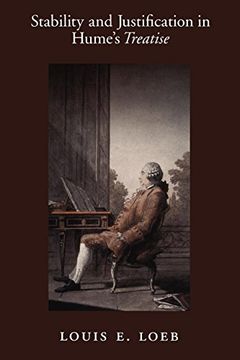Synopsis "Stability and Justification in Hume's Treatise"
David Hume's A Treatise of Human Nature is famous for its extreme skepticism. Louis Loeb argues that Hume's destructive conclusions have in fact obscured a constructive stage that Hume abandons prematurely.Working within a philosophical tradition that values tranquillity, Hume favors an epistemology that links justification with settled belief. Hume appeals to psychological stability to support his own epistemological assessments, both favorable regarding causal inference, and unfavorable regarding imaginative propensities. The theory's success in explaining Hume's epistemic distinctions gives way to pessimism, since Hume contends that reflection on beliefs is deeply destabilizing. So much the worse, Hume concludes, for placing a premium on reflection. Hume endorses and defends the position that stable beliefs of unreflective persons are justified, though they would not survive reflection. At the same time, Hume relishes the paradox that unreflective beliefs enjoy a preferred epistemic status and strains to establish it. Loeb introduces a series of amendments to the Treatise that secures a more positive result for justified belief while maintaining Hume's fundamental principles.In his review of Hume's applications of his epistemology, Loeb uncovers a stratum of psychological doctrine beyond associationism, a theory of conditions in which beliefs are felt to conflict and of the resolution of this uneasiness or dissonance. This theory of mental conflict is also essential to Hume's strategy for integrating empiricism about meaning with his naturalism. However, Hume fails to provide a general account of the conditions in which conflicting beliefs lead to persisting instability, so his theory is incomplete.Loeb explores Hume's concern with stability in reference to his discussions of belief, education, the probability of causes, unphilosophical probability, the belief in body, sympathy and moral judgment, and the passions, among other topics.

